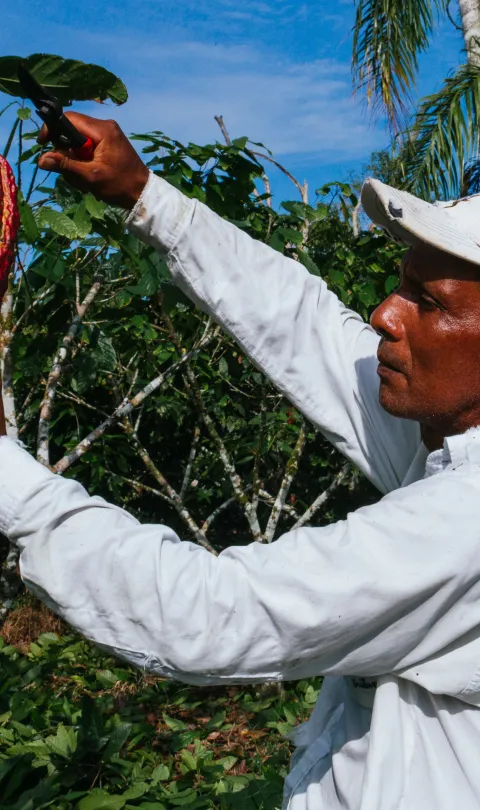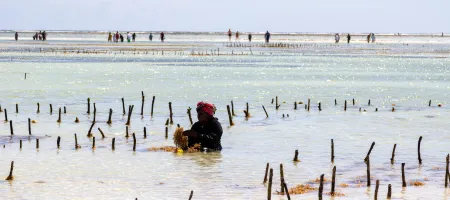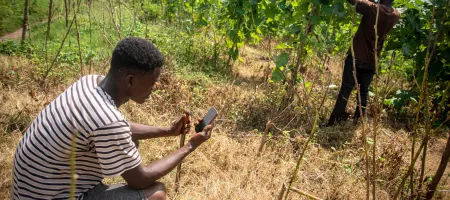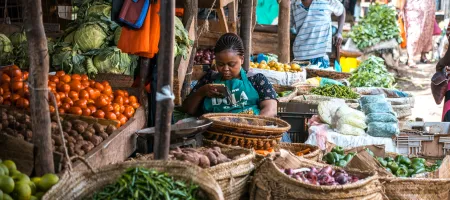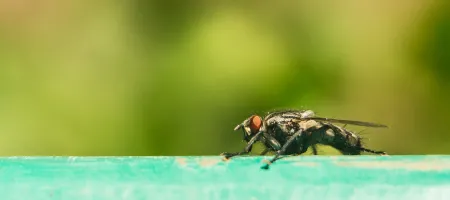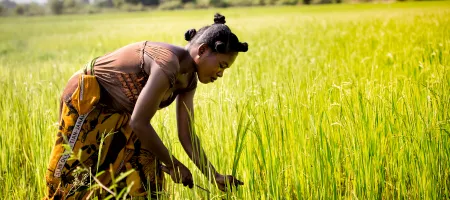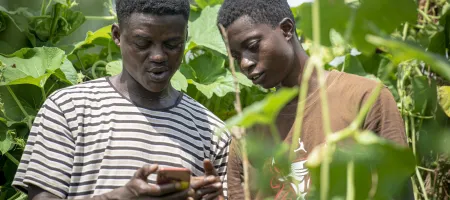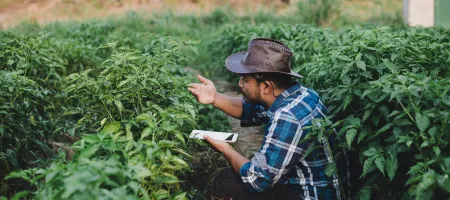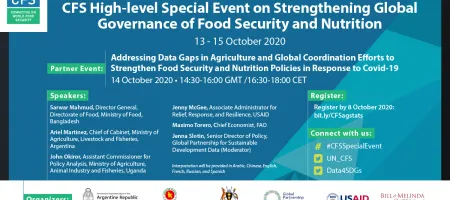About the initiative
Gaps in information prevent us from eradicating food insecurity as hundreds of millions of people around the world go hungry every day. Low and middle-income countries spend around $190 billion each year on agriculture to address food insecurity.
Yet the data to effectively target this spending or measure results is often patchy, outdated or nonexistent. That’s why this initiative from the Global Partnership for Sustainable Development Data aims to build political support from United Nations member states and agricultural sector stakeholders on the urgent need for investment in agriculture and food systems data. This initiative also aims to build consensus on the institutional changes needed to strengthen the data and statistics work of the UN’s Rome-based agencies focused on food and agriculture.
Rome Data Champions
In global food security, data is critical in shaping policies, tracking progress, and ensuring resources reach those who need them most. However, the complexity of agricultural data and statistics can make it difficult for policymakers–especially those in non-technical diplomatic roles–to engage effectively in technical discussions.
To bridge this gap, the Global Partnership established the Rome Data Champions (RDC) in 2022, an informal forum for exchange and dialogue on key data issues affecting food systems and food security.
A hub for multilateral dialogue on food security
Rome hosts key multilateral institutions working on food security, including the Food and Agriculture Organization (FAO), World Food Program (WFP), and International Fund for Agricultural Development (IFAD), making it a hub for global policy discussions. Recognizing this, the RDC was created as a space for representatives from diplomatic missions, civil society, and international organizations to engage in candid, Chatham House Rule discussions on how data can support better decision-making.
With 15-20 active members from the diplomatic community across all FAO regional groups, the RDC convenes every four to six weeks ahead of key dates in the Rome policy calendar. The RDC is an open group, welcoming participation from any FAO member state.
Meetings provide members with relevant information for upcoming discussions, negotiations, and governing body meetings. Through policy briefs, expert speakers, and an informal space for discussion, the meetings help members navigate complex or technical data issues and prepare for critical negotiations and meetings.
Many Rome-based diplomatic missions are responsible for covering multiple institutions–including bilateral relations and the Vatican–leading to resources being stretched thin. This often leads to lower participation from smaller delegations in key governing bodies such as the Committee on World Food Security (CFS). The RDC helps to bridge this gap by ensuring that more delegations, regardless of size, have access to data insights that strengthen their engagement in multilateral processes.
Connecting national data ecosystems to global policy
As a global network, the Global Partnership facilitates dialogue around agricultural data and statistics, linking national statistical offices, Ministries of Agriculture, civil society, and UN organizations with high-level discussions on global data governance. The RDC is one mechanism ensuring that insights from national data ecosystems inform international decision-making–and vice versa.
Through active collaboration with the UN Statistics Division and FAO, the Global Partnership helped elevate Rome-based policy processes to inform discourses across the UN system. This includes advocacy around the CFS Voluntary Policy Recommendations on Data, calling for the establishment of a new statistical domain on food security and nutrition data within the UN system, and deeper integration of food security data into global statistical frameworks.
By strengthening data-driven decision-making at the multilateral level, the Rome Data Champions are enhancing the role of data in ensuring global food security and sustainable food systems.
Insights from past RDC discussions
Below is a selection of meeting summaries from recent RDC meetings:
Differences in how food security is measured (Feb 2025)
Integration of FAO Statistics Division and the Office of the Chief Statistician (Nov 2024)
Data in the context of CFS Inequality workstream (Apr 2024)
How FAO uses and produces agricultural data and statistics (Jan 2024)
Want to know more? Contact mailto:[email protected]
